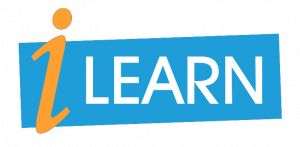
The "Global Leadership" course is designed to equip students with the essential knowledge, skills, and competencies required to lead effectively in a globalized and interconnected world. The course explores the challenges and opportunities of leading diverse teams, managing cross-cultural dynamics, and navigating complex global environments. Through a combination of theoretical frameworks, case studies, and practical exercises, students will develop a deep understanding of what it means to be a global leader in the 21st century.
Learning Objectives:
By the end of this course, students will be able to:
1. Understand the key concepts, theories, and models of Leadership and Global Leadership in particular.
2. Analyze the impact of cultural, social, and economic differences on leadership practices.
3. Develop strategies for effective communication and collaboration in multicultural teams.
4. Apply ethical decision-making frameworks to address global challenges.
5. Demonstrate adaptability, resilience, and emotional intelligence in leadership roles.
6. Reflect on their own leadership style and identify areas for growth in a global context.
Course Content:
1. Introduction to Global Leadership:
o Defining global leadership
o The role of globalization in shaping leadership practices
o Key competencies of global leaders
2. Cultural Intelligence and Cross-Cultural Communication:
o Understanding cultural dimensions (e.g., Hofstede, Trompenaars)
o Overcoming cultural barriers in communication
o Building trust and rapport across cultures
o Country Cluster specific examples (Northern Asia – CN, JAP, North America – USA, Europe – DACH, Scandinavia, Eastern Europe)
3. Leading Diverse and Virtual Teams:
o Strategies for managing geographically dispersed teams
o How to behave in global business meetings, business practices and standards – What To-Do and NO-GOs
4. Ethical Leadership and Social Responsibility:
o Ethical dilemmas in global leadership
o Corporate social responsibility (CSR) and sustainability
o Balancing profit and purpose in a global economy
5. Global Leadership in Practice:
o Case studies of successful global leaders
o Developing a personal leadership action plan
Learning Objectives:
By the end of this course, students will be able to:
1. Understand the key concepts, theories, and models of Leadership and Global Leadership in particular.
2. Analyze the impact of cultural, social, and economic differences on leadership practices.
3. Develop strategies for effective communication and collaboration in multicultural teams.
4. Apply ethical decision-making frameworks to address global challenges.
5. Demonstrate adaptability, resilience, and emotional intelligence in leadership roles.
6. Reflect on their own leadership style and identify areas for growth in a global context.
Course Content:
1. Introduction to Global Leadership:
o Defining global leadership
o The role of globalization in shaping leadership practices
o Key competencies of global leaders
2. Cultural Intelligence and Cross-Cultural Communication:
o Understanding cultural dimensions (e.g., Hofstede, Trompenaars)
o Overcoming cultural barriers in communication
o Building trust and rapport across cultures
o Country Cluster specific examples (Northern Asia – CN, JAP, North America – USA, Europe – DACH, Scandinavia, Eastern Europe)
3. Leading Diverse and Virtual Teams:
o Strategies for managing geographically dispersed teams
o How to behave in global business meetings, business practices and standards – What To-Do and NO-GOs
4. Ethical Leadership and Social Responsibility:
o Ethical dilemmas in global leadership
o Corporate social responsibility (CSR) and sustainability
o Balancing profit and purpose in a global economy
5. Global Leadership in Practice:
o Case studies of successful global leaders
o Developing a personal leadership action plan
- Dozent/in: Koeppen Matthias MK
Semester: ST 2025
